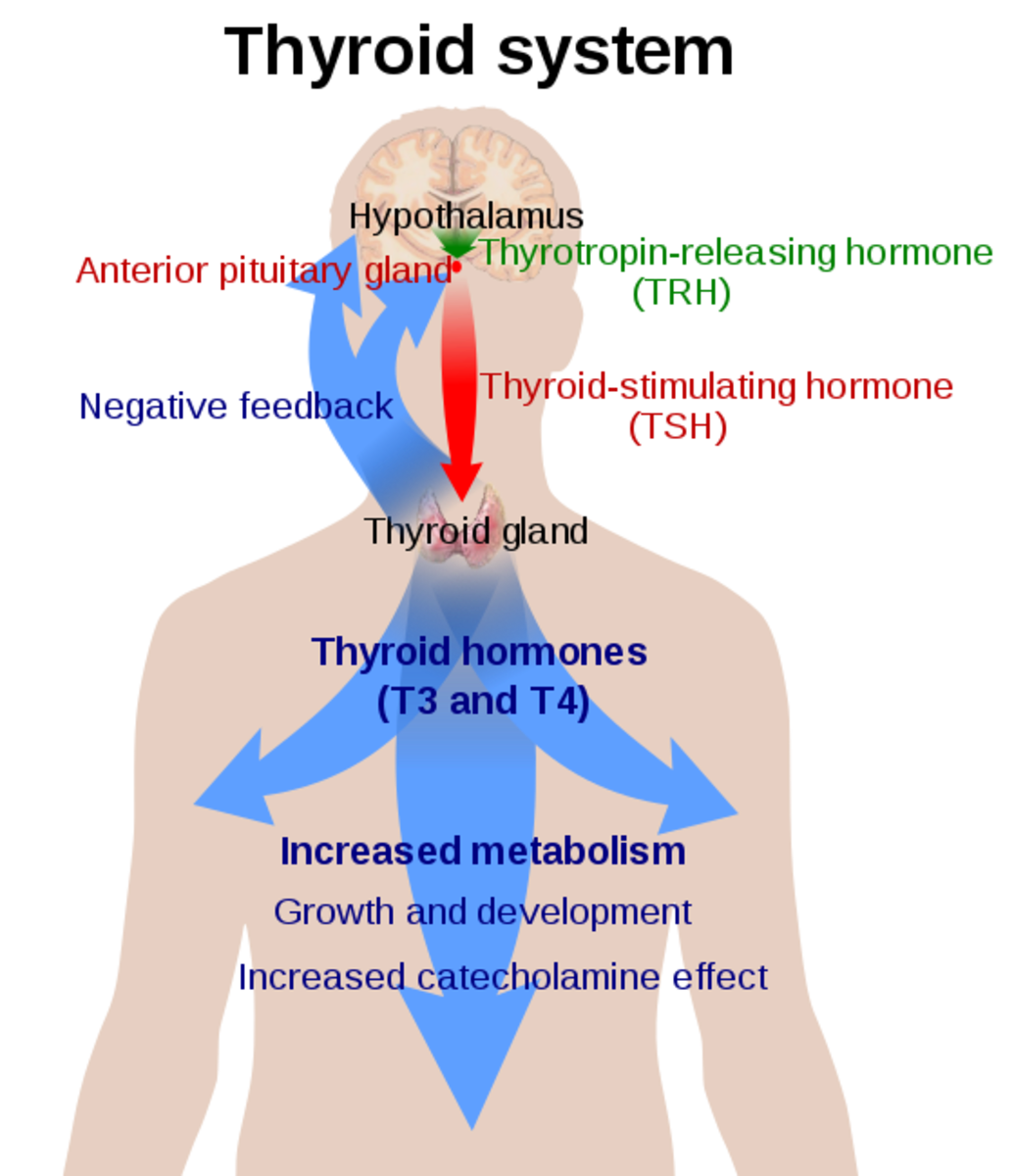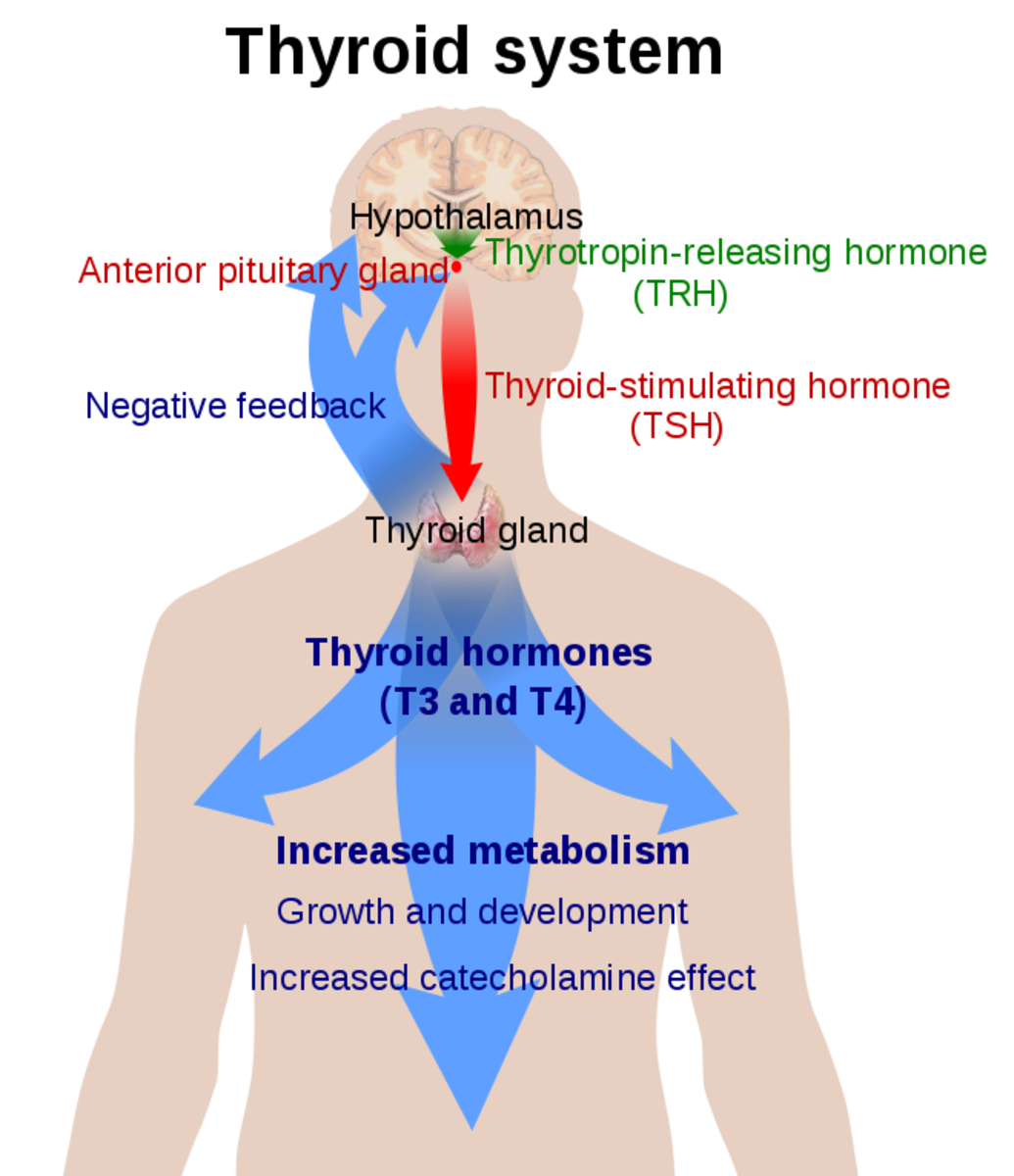Neanderthal - Evolution or Thyroid Deficiency?

In the evolutionary line to modern humans, the Neanderthal is strange species. Experts are not agreed yet on whether they are a different species altogether or our direct ancestors.
What is however clear from Neanderthal bones obtained from archeological site is that this species share some similarities with us. Even though their bones are different from ours, they bear a striking resemblance to the bones of modern humans who suffer from cretinism (a deficiency in thyroid hormones such as triiodothyronine and thyroxine).
The Neanderthal occupied the earth for a span of 200,000 years and shared the later end of their timeline with the first modern humans, the Cro-Magnon. While the later species occupied the coastal area, the older Neanderthal were mostly found in the inlands.
It is believed that the Neanderthal was forced to move inland after the Ice Age to avoid the rising sea level. However, by moving away from the coastal, they unknowingly gave up something essential in the diets: iodine.
Iodine and Hypothyroidism Remedies
Iodine is mostly found in the oceans as iodide. It is sometimes taken up as the elemental iodine which falls back to earth with rain.
However, not enough iodine can get to the diets of species living inland through this means. Therefore, iodine deficiency is common in populations living far from the coast even today.
Iodine deficiency leads to a condition called cretinism. Cretinism refers to the stunted physical and mental growth observed in those who have chronic hypothyroidism because they cannot get enough iodine in their diets.
Hypothyroidism can be genetic, endemic or sporadic. In the case of Neanderthal, it is most likely both endemic and genetic.
Signs of congenital hypothyroidism include delayed bone maturation, early puberty and inhibited ovulation. Infertility is also common.
Other manifestation of this condition predicted in Neanderthal include reduced muscle tone and motor coordination as well as cognitive impairment, slowness, thick skin, enlarged tongue and protruding abdomen. These signs of hypothyroidism and cretinism are inferred from the discovered bone structure and reconstituted body shapes of Neanderthal.
The Hypothyroidism Theory of Neanderthal’s Appearance
The link between low iodine diet and the appearance of Neanderthal was first put forward by Jerry Dobson, a geographer at Computational Physics and Engineering Division.
He argued that Neanderthal most likely suffered from hypothyroidism given that their bone structures resemble those of modern humans who suffered from cretinism.
Support for this theory came from the observation that Neanderthal lived away from the coastal areas and were often found in the mountainous and glaciated parts of Europe. Even today those places are known to receive only low levels of iodine.
Iodine deficiency spreads quickly down the generations especially if it persists.
Since fetal development also depends on maternal thyroid function and iodine levels, it is likely that Neanderthal babies were born underdeveloped and continued to experience slow growth from low iodine in their diets.
However, not all of Neanderthal’s cretinism is due to its low-iodine diet.
Since the Cro-Magnon occupied the same areas as the Neanderthal but fared better, it is believed that Neanderthal may also have a less efficient thyroid gland.
A physiological inability to efficiently extract the iodine in its diet will also contribute to cretinism in Neanderthal.
Overall, it appears that the whole species of Neanderthal was defined by a simple thyroid deficiency.
Today, we know Neanderthals were short, stocky, slow, thick-skinned and rather simple branch of the evolutionary tree that produced the modern man. But what if they had taken up a diet rich in iodine? It is quite possible that they would have turned out better.








